
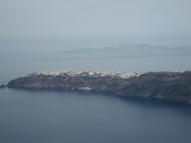
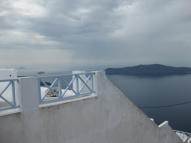
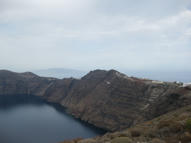
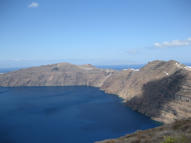
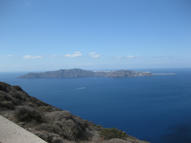
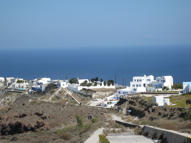
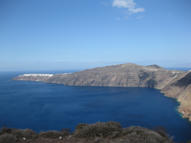
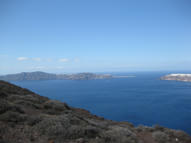
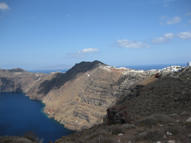
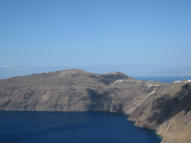
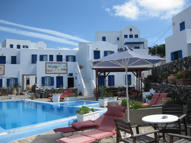
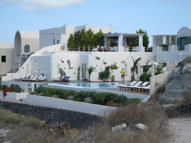
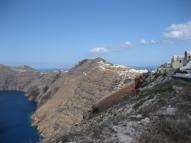
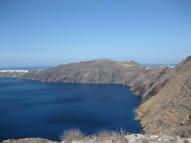
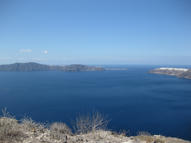
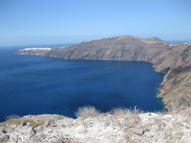
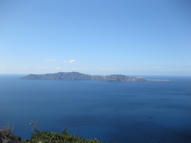
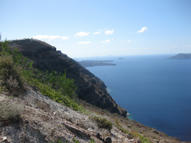
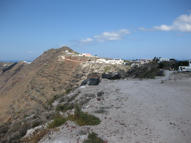
Ημερολόγιο καταστρώματος ξενιτεμένης Ελληνίδας. Collection of videos and articles that caught my interest and I wish to share.
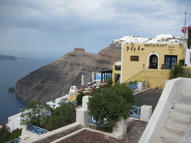

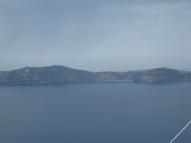
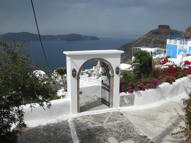
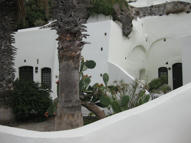
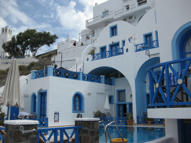
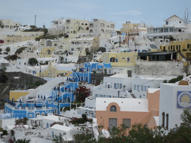
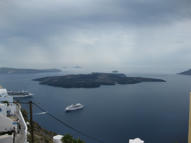
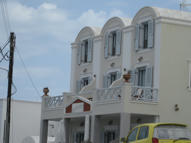
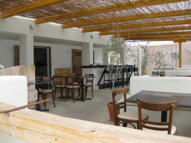
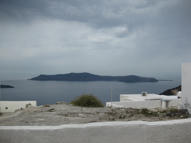
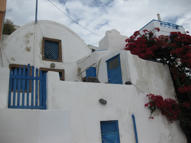


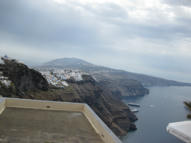
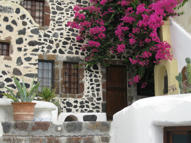

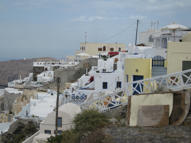



Ωωωωω! Θυμάμαι ένα φλέγον ζήτημα που απασχολούσε την Bookcrosseriki κοινότητα Smoking - No Smoking Meet - up κάποιοι θα αισθάνονται δικαιωμένοι και το κόμμα θα αποκτήσει πολλούς οπαδούς.
«Γιατί τα δάση καίγονται σε χρονιές εκλογών;»
http://www.tvxs.gr/v18843
Αυτόματο μήνυμα. Email επικοινωνίας: webteam@tvxs.gr
Τριπλάσιες από τις άλλες χρονιές, κατά μέσο όρο, είναι οι εκτάσεις που καίγονται όταν πρόκειται να γίνουν εκλογές. Αυτό προέκυψε από έρευνα των καθηγητών Σ. Σκούρα και Ν. Χριστοδουλάκη στην οποία ανέλυσαν στοιχεία πυρκαγιών από το 1955-2008. Άρθρο τους που αναλύει τα ευρήματα της έρευνας δημοσιεύτηκε στην «Καθημερινή» στις αρχές Ιουλίου.
Ήταν άραγε προβλέψιμος ο εμπρησμός του δάσους στην Αιξωνή ώστε να είχε αποφευχθεί άλλη μια περιβαλλοντική καταστροφή; Υπάρχει άραγε εξήγηση στην αδυναμία του κράτους να σβήσει μία φωτιά στις παρυφές της πρωτεύουσας; Η απάντηση και στα δύο ερωτήματα είναι καταφατική, αλλά για να αποτραπεί η επανάληψή τους πρέπει να καταλάβουμε τα κίνητρα όσων εμπλέκονται και να τα εξαλείψουμε.
Η αβελτηρία κατά τις προεκλογικές περιόδους προκαλείται είτε από την ηθελημένη επιλογή των εκάστοτε κυβερνώντων να παρακάμψουν τους κανόνες επειδή η παύση του κοινοβουλευτικού ελέγχου τους προφυλάσσει από ενοχλητική δημοσιότητα, είτε από την αθέλητη χαλάρωση της διοίκησης την οποία όμως αρκετοί εκμεταλλεύονται για να προωθήσουν αμφιλεγόμενες υποθέσεις. Συχνά άλλωστε το σήμα της χαλάρωσης το δίνει η ίδια η πολιτική ηγεσία, καθώς αφιερώνει περισσότερο χρόνο στην προσπάθεια επανεκλογής παρά στον τομέα ευθύνης της. Ετσι, δεν μας εξέπληξε όταν σε πρόσφατη έρευνά μας βρήκαμε ότι καθώς πλησιάζουν εκλογές τα φορολογικά έσοδα υποχωρούν, όχι επειδή αλλάζουν οι σχετικοί νόμοι αλλά προφανώς επειδή αραιώνουν οι έλεγχοι – αποστερώντας έτσι τα κρατικά έσοδα από 6 δισ. ευρώ στο διάστημα από το 1974 έως σήμερα! Βλέπουμε οργανισμούς να φορτώνονται με προσλήψεις κομματικών υποστηρικτών και κρατικά κονδύλια να διοχετεύονται προεκλογικά σε πελατειακές δραστηριότητες, ενώ σημαντικές μεταρρυθμίσεις μπαίνουν στο ράφι για να μην προκληθούν αντιδράσεις από τις θιγόμενες ομάδες. Προς άγραν ψήφων, γίνονται δεσμεύσεις ότι αυθαίρετα κτίσματα θα νομιμοποιηθούν, πρόστιμα θα σβήσουν και μεταθέσεις θα υπογραφούν. Όσο και αν πολλά από αυτά ξεχνιούνται μετά τις εκλογές, ορισμένα πάντα υλοποιούνται ώστε να γίνουν πιστευτές και οι επόμενες υποσχέσεις.
Η εντατικοποίηση των εμπρησμών παράλληλα με την μειωμένη αποτελεσματικότητα του κρατικού μηχανισμού είναι και ο λόγος που –σύμφωνα με την έρευνά μας– στις χρονιές των εκλογών οι καιόμενες δασικές εκτάσεις είναι κατά μέσον όρο τριπλάσιες απ’ ό,τι στις υπόλοιπες. Αναλύοντας τα στοιχεία δασικών πυρκαγιών στην Ελλάδα για την περίοδο 1955 - 2008 προκύπτει ότι κατά τη διάρκεια των 54 αυτών ετών κάηκαν συνολικά 1.900.000 εκτάρια δάσους και από αυτά τα μισά κάηκαν στα 16 έτη που έγιναν εκλογές χωρίς να υπάρχει καμία ουσιώδης διαφορά στα μέσα επίπεδα βροχοπτώσεων και θερμοκρασίας. Μάλιστα, ενώ οι καιόμενες εκτάσεις στην Ελλάδα συνήθως συμβαδίζουν με τις αντίστοιχες στην Ιταλία όπου επικρατούν παρόμοιες περιβαλλοντικές συνθήκες, η συσχέτιση αυτή εξαφανίζεται στις χρονιές εθνικών εκλογών στην Ελλάδα!
Εκλογές χωρίς μεγάλες πυρκαγιές ήταν μόνο αυτές που έγιναν το 1989 - 90 με τις διαδοχικές προσφυγές στην κάλπη και το 1996 όταν προκηρύχθηκαν αιφνιδιαστικά χωρίς να προλάβει να υπονομευθεί η συνοχή του μηχανισμού δασοπυρόσβεσης. Ενας πολύ συντηρητικός υπολογισμός μόνο του οικονομικού κόστους των επιπλέον καμένων εκτάσεων σε χρονιές εκλογών αγγίζει τα 7 δισ. ευρώ για την περίοδο 1955 - 2007.
Μια τεράστια καταστροφή συνέβη το προεκλογικό καλοκαίρι του 2007, όταν η πυρκαγιά στην Ηλεία βρήκε πολλούς κυβερνητικούς υπεύθυνους να μιλούν σε κομματικές συγκεντρώσεις, ο στρατός άργησε πολλές μέρες να κινητοποιηθεί ενδεχομένως και για να μην θυμίσει άλλες εποχές διαφορετικής προεκλογικής «χρησιμοποίησής» του και ο χρόνος των επιτελικών συσκέψεων μοιραζόταν ανάμεσα στις επιχειρησιακές απαιτήσεις της κατάσβεσης και των επικοινωνιακών αναγκών της εκλογικής συγκυρίας.
Πολλοί φοβούνται ότι δεν αποκλείεται να ξαναδούμε να εκτυλίσσεται το ίδιο σενάριο και αυτό το, πιθανότατα προεκλογικό, καλοκαίρι, εκτός και αν κάτι αλλάξει άμεσα και ριζικά. Πέρα από τα επικοινωνιακά ευχέλαια που δύσκολα κλονίζουν την αποφασιστικότητα των εμπρηστών, η κυβέρνηση μαζί με όλα τα κόμματα πρέπει να σχεδιάσει και να εφαρμόσει μια πολιτική αυστηρής επιτήρησης δασικών περιοχών και μόνιμης διαφύλαξης του χαρακτήρα τους. Για να αποδείξει ότι το εννοεί μπορεί να προχωρήσει τώρα σε μαζικές κατεδαφίσεις κτισμάτων που ανεγέρθηκαν στα δάση που κάηκαν σε προηγούμενα έτη. Παράλληλα, για να αποφύγει την προεκλογική συναλλαγή στον αποχαρακτηρισμό δασικών περιοχών μπορεί να διατάξει την παύση έκδοσης των σχετικών αποφάσεων από τώρα έως και δύο μήνες μετά τις εκλογές.
Η ταυτότητα όσων κερδίζουν από τον εμπρησμό των δασών μπορεί εύκολα να εντοπιστεί αν δημοσιεύεται στο Διαδίκτυο ο ονομαστικός πίνακας ιδιοκτητών των δασικών εκτάσεων, καθώς και όλες οι άδειες ανέγερσης που εκδίδονται σε αυτές. Υπάρχει επίσης τρόπος για να μειωθούν τα κίνητρα μελλοντικών εμπρησμών: Οταν καίγεται μια δασική περιοχή για οποιονδήποτε λόγο και αιτία, να επιβάλλεται εισφορά σε όλους τους ιδιοκτήτες των καμένων εκτάσεων ίση με την αξία που θα αποκτούσε η γη εάν οικοπεδοποιείτο. Οποιος δεν θέλει ή δεν έχει να πληρώσει, θα μεταβιβάζει αυθωρεί την έκτασή του υπέρ του Δημοσίου στο πλαίσιο αναγκαστικής απαλλοτρίωσης. Ετσι εξαλείφεται το περιθώριο κερδοσκοπίας των οικοπεδοφάγων και το Δημόσιο θα έχει τόσο την κυριότητα όσο και τα χρήματα για μια πραγματική επανάκτηση του δάσους που τώρα διατυμπανίζει μεν στα λόγια, αλλά σπανίως κάνει και στην πράξη.
Το ερώτημα, βέβαια, είναι γιατί η σημερινή να είναι η πρώτη κυβέρνηση που θα κάνει κάτι τέτοιο και ενδεχομένως το πληρώσει εκλογικά; Το μόνο που μπορούμε να ελπίζουμε είναι ότι καθώς οι πολίτες ενημερώνονται για το πρόβλημα και τη λύση του, η συμπεριφορά τους θα αλλάξει και αυτό θα υποχρεώσει την κυβέρνηση να αναθεωρήσει την επαναλαμβανόμενη ψηφοθηρική αριθμητική.
Οι κ. Σπύρος Σκούρας και Νίκος Χριστοδουλάκης είναι καθηγητές στο Οικονομικό Πανεπιστήμιο Αθηνών. Περισσότερα στοιχεία και στατιστικές πηγές υπάρχουν στην πρόσφατη εργασία των συγγραφέων «Electoral law-bending cycles», 2009.
Δημοσιεύτηκε στις 05-07-2009